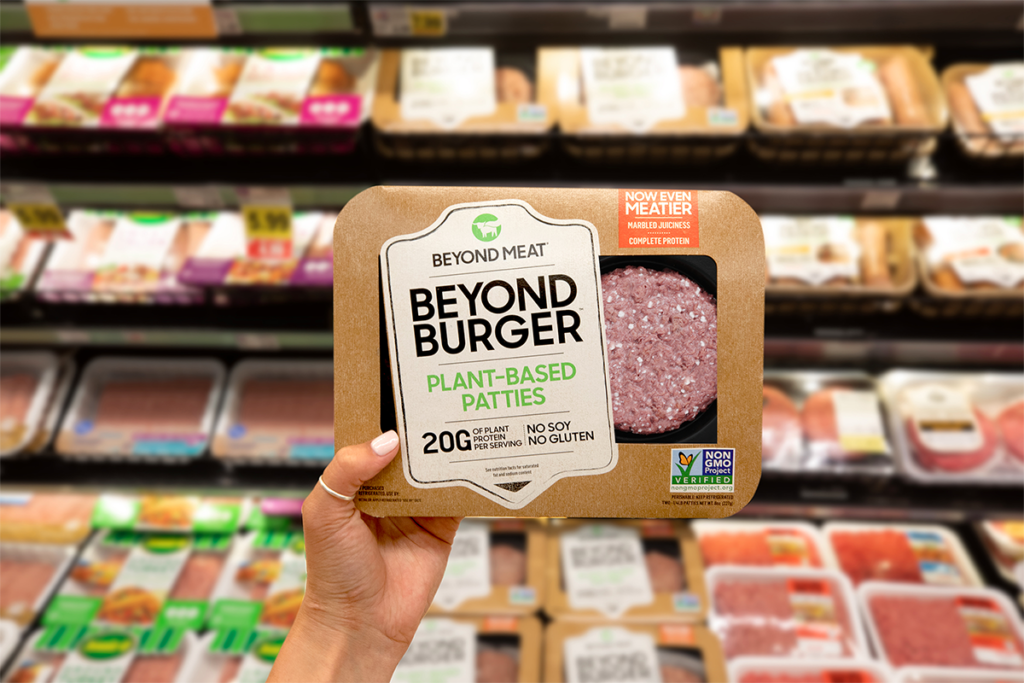Beyond Meat is preparing to launch plant-based steak later this year.
Alt-steak. Unlike its existing lineup of meat-mimicking options that replicate ground or processed cuts, the company’s pseudo steak aims to recreate a whole slab of meat.
Debuting in retail stores before hitting restaurants, the company hopes its fake steak provides a much-needed boost.
Cash cow. Championing environmental and social change, Beyond revolutionized veggie burgers, creating patties that look and taste like the real thing. Hitting the public market in May of 2019, the company’s value jumped from $3.9B at its debut to $13B by that July.
Money pit. With a market cap of $2B, Beyond’s shares have fallen about 85% in the past 12 months. This May, it posted a $100.5M loss. Worse, plant-based meat sales have sputtered as of late.
- Fake meat options account for less than 1% of all meat consumed in the US.
- After rising 200% in 2020, US retail sales of plant-based meat were flat last year.
- On a per-pound basis, plant-based meat is double the price of animal-based meat.
On the bright side. Demand for animal-free foods is growing, even as fake meat falters. In 2021, US consumers spent $7.4B on plant-based foods, up 6% YoY and a 54% increase from three years earlier.
Hurdles ahead. Bringing prices down and cracking the code on repeat purchases, plant-based meat brands have their work cut out for them. Another issue, in terms of nutritional benefits, plant-based doesn’t mean healthy.
Staying the course. According to Beyond Meat CEO Ethan Brown, the mission remains unchanged: make meat-free products tasty and affordable enough that consumers actually want to eat them.






